Refugee Resettlement Schemes
The Syrian Vulnerable People's Resettlement Scheme was announced by the Home Secretary on 29 January 2014. It is designed to provide assistance to Syrians who have fled to neighbouring countries as a result of the current crisis and who are particularly vulnerable.
Coventry joined the scheme in July 2014, and since then we have become one of the leading cities in the UK for the resettlement of refugees.
In October 2016 Coventry joined the Vulnerable Children's Resettlement Scheme. This scheme focuses on the resettlement of vulnerable children and their immediate families from the Middle East and North Africa. This scheme is run in the same way as the Syrian VPR scheme.
In March 2021, the VPRS and VCRS have been replaced by the UKRS. The UK Resettlement Scheme has a geographical focus beyond the Middle East and North Africa region. As of October 2022, over 1000 refugees have been welcomed into the city under these schemes.
We will continue to work closely with the United Nations High Commissioner for Refugees (UNHCR) and the International Organization for Migration (IOM) to target those in greatest need of assistance, including people requiring urgent medical treatment, survivors of violence and torture, and women and children at risk. UNHCR is uniquely placed to identify those living in formal refugee camps, informal settlements and host communities who would benefit most from resettlement to the UK.
Coventry City Council leads a partnership of organisations throughout the city, in order to deliver this programme. Our key partners are Coventry Citizens Advice, Coventry Refugee and Migrant Centre, St Francis of Assisi Church (Radford), FWT - a centre for women and Positive Youth Foundation.
How do the schemes work?
The UK Home Office is responsible for setting the criteria under which people are resettled into the UK and oversees the schemes. The United Nations High Commission for Refugees (UNHCR) submits potential cases for the Home Office to consider. Once a case has passed this initial stage, the International Organisation for Migration (IoM) will conduct a full medical examination. Case files including this information are then sent to participating local authorities for consideration on the grounds of medical needs, availability of accommodation, and the potential impact on local services.
How many people will come to Coventry?
The City Council has committed to resettling 125 people per year. The schemes were due to end in 2020, however, this is no longer the case. We are still currently accepting clients due to the delays the pandemic has caused, however, going forward the scheme will change.
On 17 June 2019, the Home Secretary announced that the current format of the UK Resettlement Scheme (UKRS) would be changing and from 2020 it would be consolidating the Vulnerable Person Resettlement Scheme, the Vulnerable Children's Resettlement Scheme and the Gateway Protection Programme under the umbrella of the UKRS.
The purpose of this is to resettle up to 5,000 of the world's most vulnerable refugees in the UK within the first year of the scheme; refugees who would have previously been resettled through the flagship Vulnerable Person's Resettlement Scheme.
How are the schemes funded?
Funding for resettlement schemes is provided by the Home Office.
What is the impact on housing and services in Coventry?
Home Office funding is used to secure private rented accommodation for the first year. We have not used the City Council's existing housing stock, meaning that social housing waiting lists have not been affected.
Coventry Schools will receive a grant for each child attending under the resettlement schemes. This is to aid their education and integration into the UK's school system, whilst reducing the impact on school budgets.

